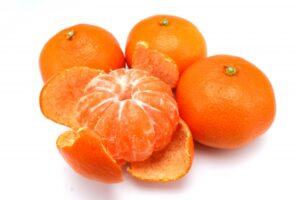Which is sweeter? Citrus Sommelier License
On top of the kotatsu, a basket of mandarin oranges. It’s a winter scene in Japan.
Tangerines = write “honeydew”. It means “citrus fruits as sweet as honey”.
There are various names attached to each production area and are lined up in the store, but all the original varieties are “Unshu mandarin”.
The name comes from the city of Wenzhou, Zhejiang Province, China.
It is said to have been derived from citrus seeds that came to Kagoshima from China in the 17th century, but whatever,
In a recent study, genome analysis of the DNA of “Unshu mandarin” showed that “Kishu mandarin” and “nine-year mother (KunenBo)” was found to be likely to have been born by crossbreeding.
By using the results of this analysis, it is expected that future breeding will be able to be done efficiently.
In fact, in the Edo period, rather than “unshu mandarin oranges”, they were also introduced to Kumamoto from Zhejiang Province in China, and later to Wakayama Prefecture.
It is said that the transplanted “Kishu mandarin” was better known.
“Kishu Mikan” is different from “Unshu Mikan” in variety, and is characterized by being quite small, seedy, and sour.
It is famous that Kinokuniya Bunzaemon brought this Kishu mandarin orange to Edo by ship and made a fortune.
In the Meiji period, when sweet and easy-to-eat “unshu mandarin” spread throughout the country, “Kishu mandarin” with a strong habit
It seems that planting has decreased due to being shunned by consumers.
Mandarin oranges are a very familiar fruit, but maybe we are surprisingly thinking about tangerines.
Maybe you don’t know.
In Uwajima City, Ehime Prefecture, a production area for citrus fruits such as mandarin oranges, comrades-in-arms members centered on citrus farmers
In 2015, we established the NPO “Citrus Sommelier Ehime” to introduce the deliciousness of citrus fruits and how to enjoy them.
We have started activities to spread the word widely as a subculture.
From the fall of 2020, the “Citrus Sommelier License System” was established.
Using special textbooks, you can acquire a wide range of basic knowledge such as citrus classification, varieties, distribution, and production, and improve the quality
Certification exams are held about twice a year by taking courses to learn techniques such as how to distinguish fruits and analyze taste.
If you pass the exam, you will be certified as a “citrus sommelier”.
The tuition fee is a little high at 25,000 yen, but the five courses held so far have citrus fruits from all over the country.
It seems that the people who love it gathered, and they were all very successful.
After obtaining his license, he participated in farming experiences at a mandarin orange farm and a study group to study how to use citrus fruits.
There are various places for activities, such as being the bearer of events that promote citrus.
Aside from participating in events, it may be good to have the knowledge to distinguish delicious tangerines.
As an example, one simple way to distinguish was introduced.
Notice the thickness of the shaft seen on the hem of the tangerine.
The shaft is a passage of water and nutrients, but citrus fruits do not need so much water and nutrients in the first place.
That’s right, it is said that the thinner the shaft, the tighter the taste and the more delicious it is.
Delicious fruit, it is just a nice feast.
I’m going to give it a try when I’m shopping on the weekend.

By Admin|2023-01-13|2023,News Release|
